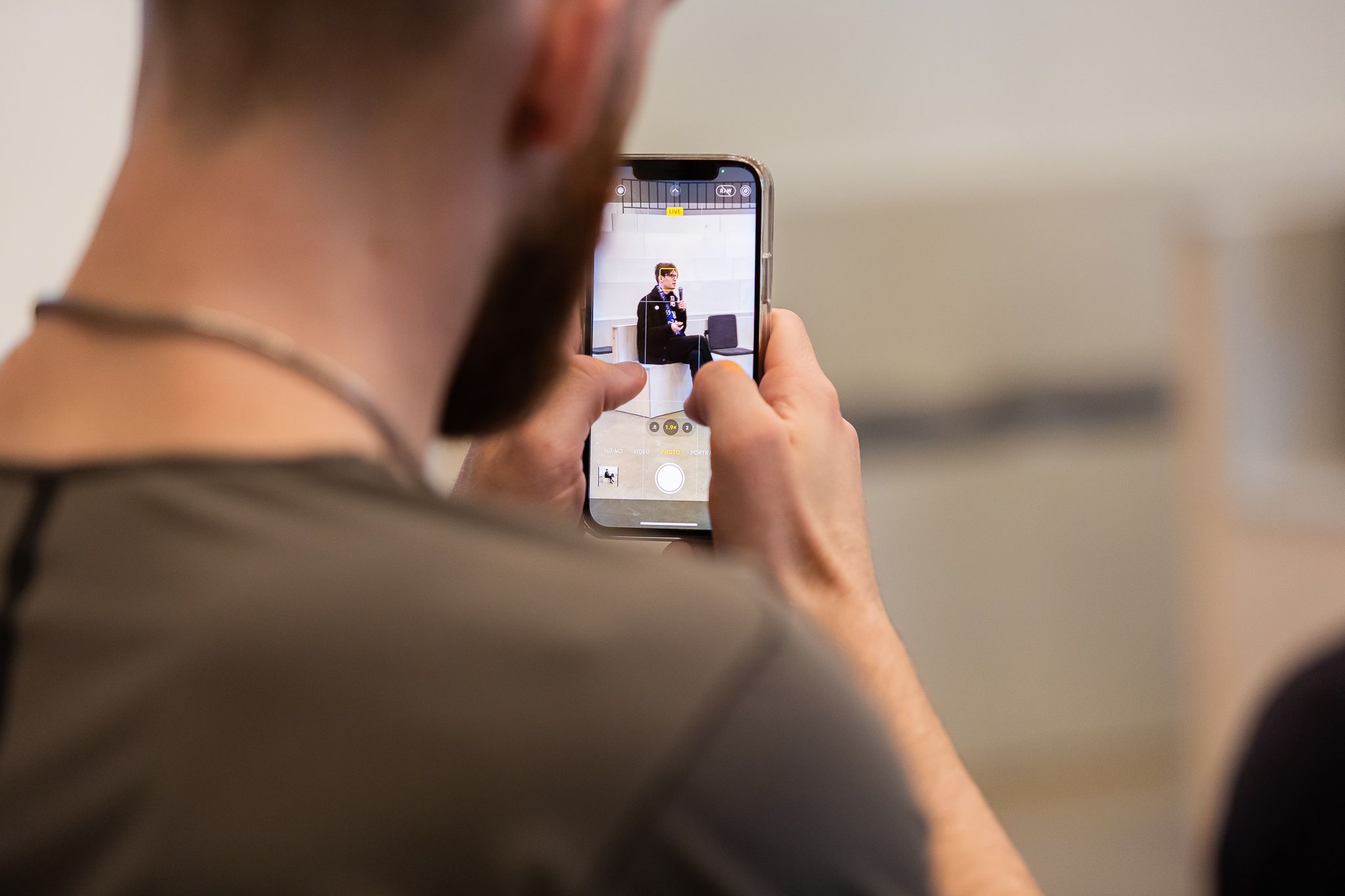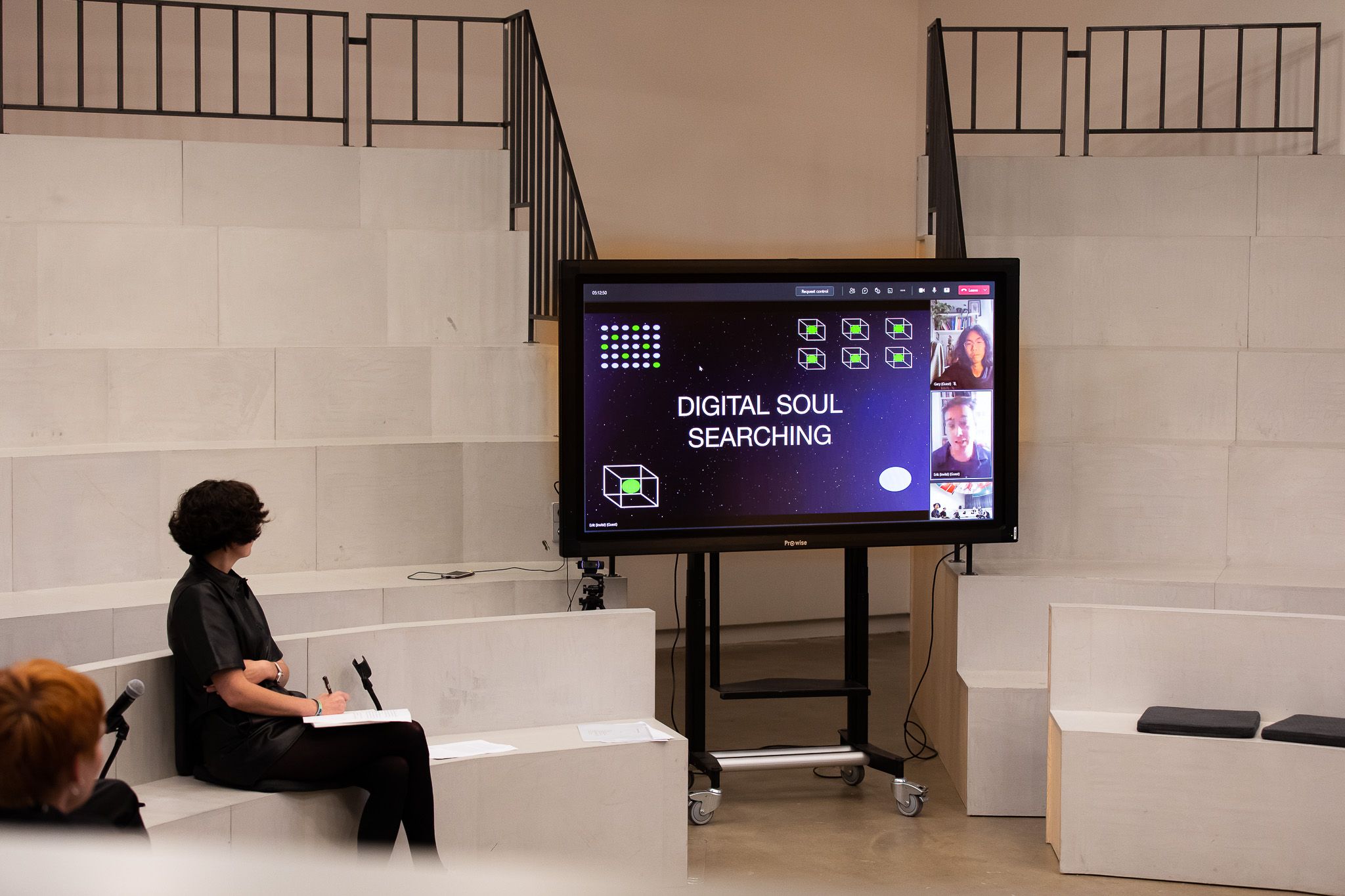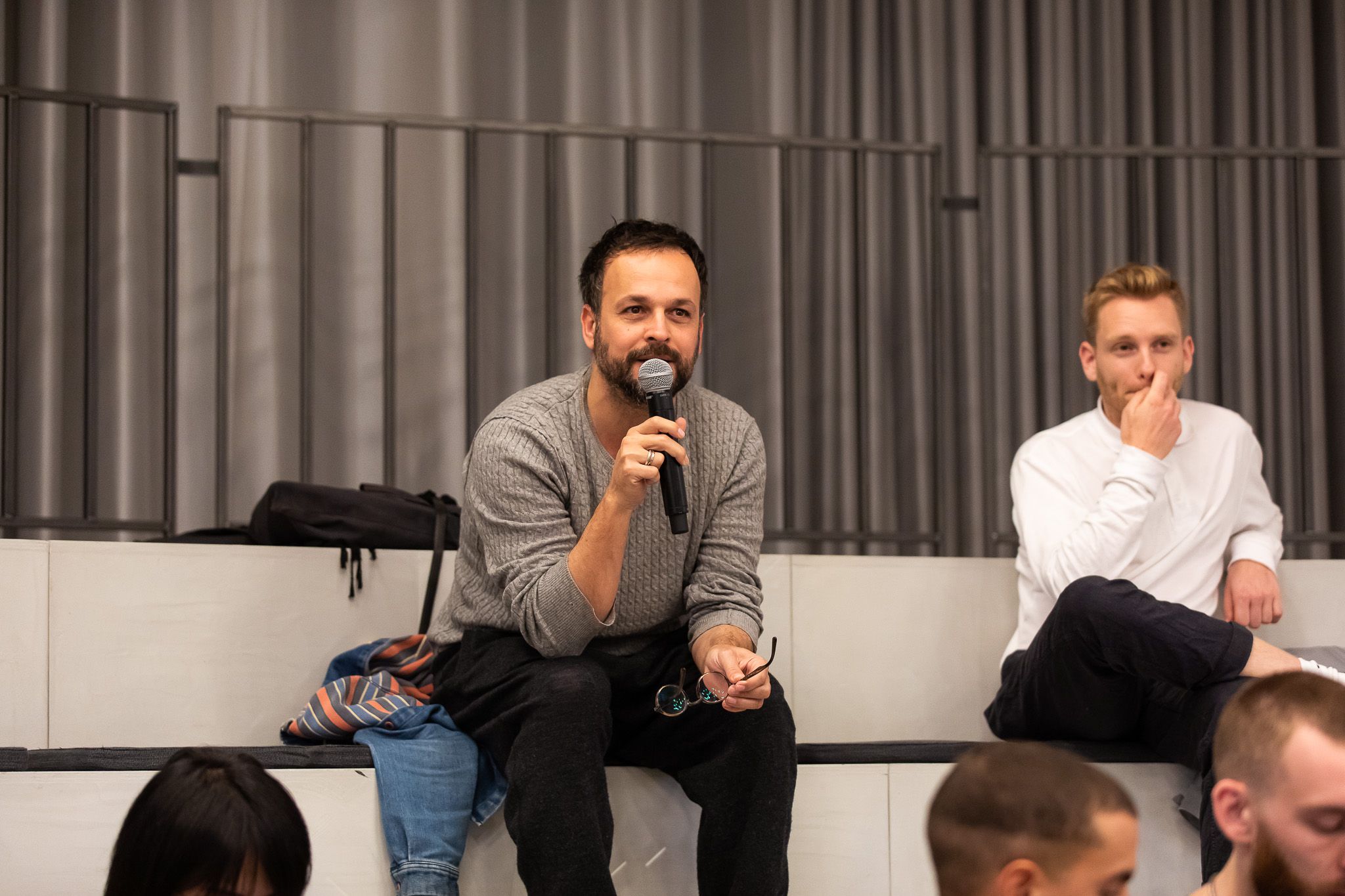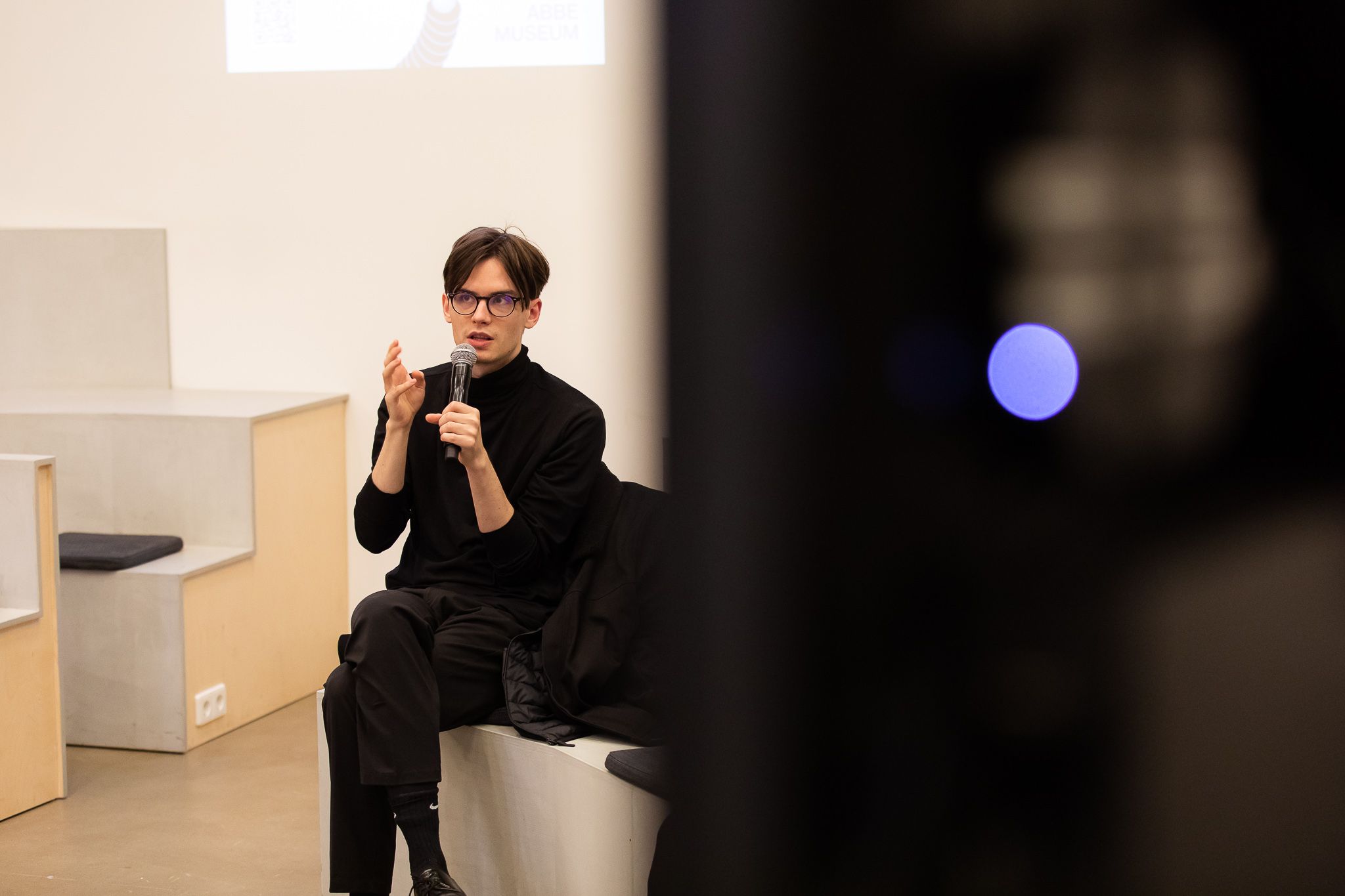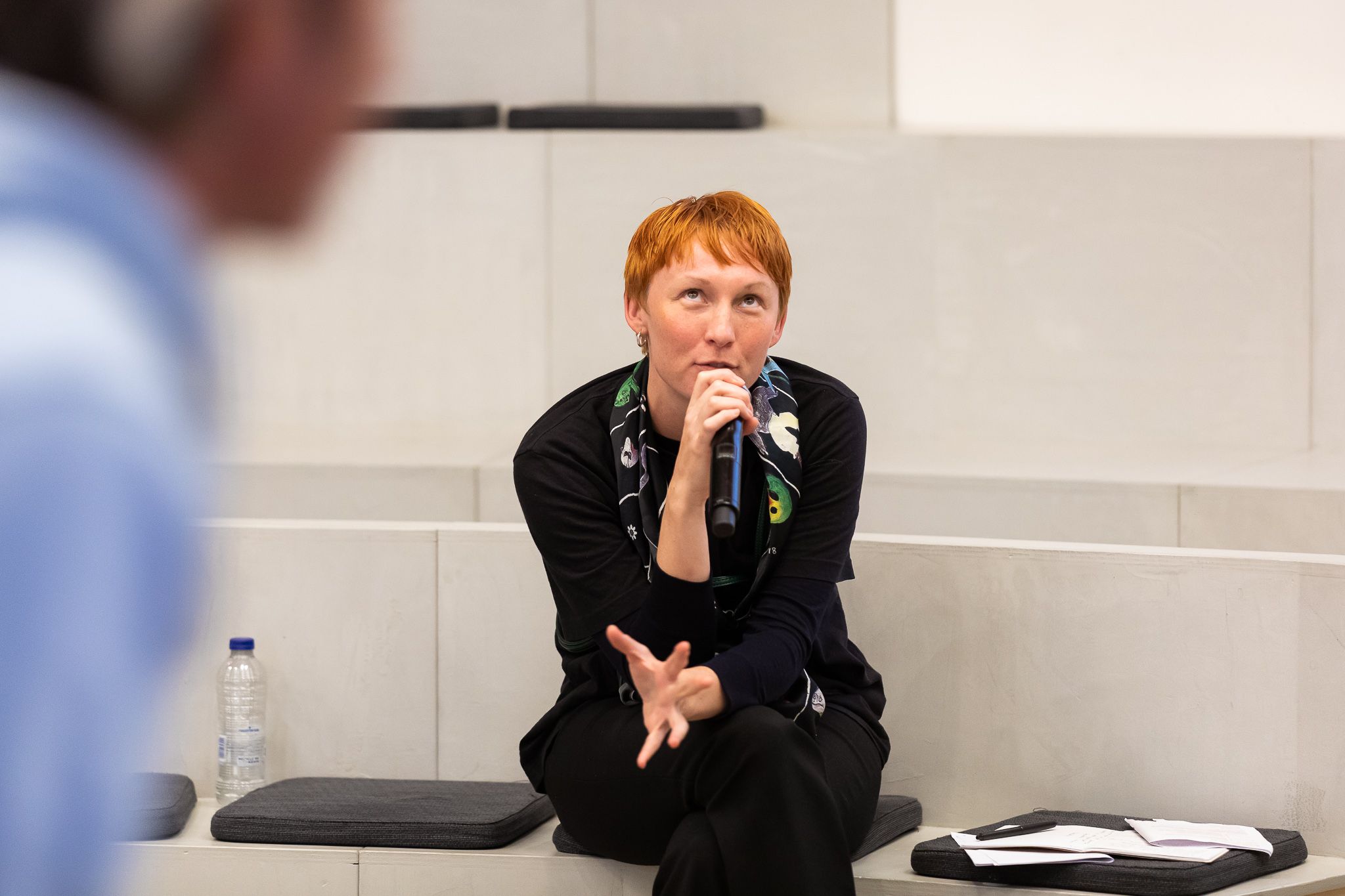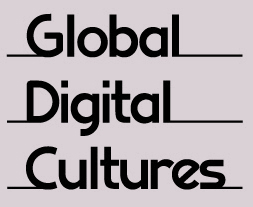Blockchains & New Governance
Alternative governance
for diverse economies
This panel focuses on how artist and designers are developing new forms of social organisations using blockchain, and how the technology can orientate their meaning with non-capitalist points of identification.
Participants: Erik Bordeleau, Maksym Rokmaniko, Gary Zhexi Zhang
This panel investigates new types of blockchain-based governance and how artists are using them to embody multi-dimensional values and motivations beyond market relations. These practices, as opposed to other blockchain artistic products like crypto assets, convey speculative moments of world-making. They empower multilocal and multidiciplinary communities and generate new systems of cooperation. As a result, these artistic practices become critical engagements with the post-digital society, and by performing the potential of blockchain, they come to be rehearsals of a potential new society to come.
Instead of exploring the grand narratives of economic systems and their political and social connotations, this panel proposes a careful meandering through the fringes of the economic discourses by looking into the work of artists and designers. The intention is to emphasise their relevance in the development of new uses and adaptations of blockchain governance, as their work is written in digital critical vernacular and fosters new imaginaries. They stimulate the development of new social relations, along with the elaboration of new worlds as alternative to hegemonic systems.
The different perspectives intend to elucidate how the technology can envision new socio-political structures and the role of artists conveying autonomous spaces for alternative futures. By thinking through the technology, they conceive new forms of governance that coordinate epistemic crowds, embedding values and social goals into the code, which, collaterally, produce an independent network of algorithmic resistance. As a result, this panel focuses on how artists activate blockchain as a hyper-political tool, utilising the adaptable digital structure to work within translocal communities united by shared values and political awareness.
Panelists
Maksym Rokmaniko is a designer and researcher working at the cutting edge of design, media, and architecture, exploring new forms of urban living and emerging technologies. He’s the founder of Center for Spatial Technologies (@spatialtech.info), and the project lead of DOMA — a cooperative, shared-ownership housing platform for equitable housing.
Gary Zhexi Zhang is an artist and researcher based in London. His first solo presentation, Cycle 25, was co-commissioned by Arts Catalyst and Bloc Projects. Recent and upcoming group exhibitions and screenings include Douglas Hyde Gallery (online); Liquid Ground, Para Site; Participation Mystique at Ming Contemporary Art Museum, Shanghai; the Swamp School at the Venice Architecture Biennale; The Internet as a City, 2nd Decentralized Web Summit; Cross-feed at Glasgow International 2018, vdrome.org (online) and All Channels Open at Wysing Arts Centre. As a writer, he contributes regularly to Frieze magazine, along with journals and catalogues such as MIT Journal of Design and Science, VERGE Journal of Global Asias, (Documents on Contemporary Art), ArtReview and others.
Zhang is a founding member of the collaborative research studio Foreign Objects and a resident at Somerset House Studios. He is sometimes an adjunct lecturer at Parsons School of Design.
Erik Bordeleau is a philosopher, writer, curator and cultural theorist. He works as a researcher at NOVA university in Lisbon and is also affiliated researcher at the Art, Business and Culture Center of Stockholm School of Economics. He has published and co-edited several books and articles in different languages at the intersection of political philosophy, contemporary art, world cinema, blockchain cultures, finance and media theory. A German translation of his book on the commons, Das Commons des Komunismus. Eine Kartographie, was published earlier this year at Büchner Verlag (2021). In collaboration with Saloranta & De Vylder, he is developing The Sphere, a web 3.0 platform for self-organisation in the performing arts.

